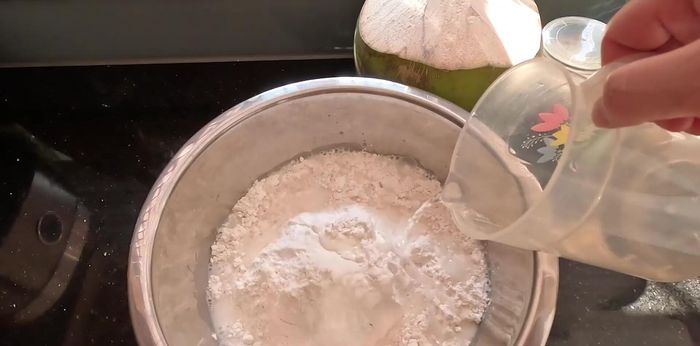Craving the rich, savory flavors of braised pork intestines but committed to a vegetarian lifestyle? This recipe offers a surprisingly satisfying solution! We'll explore a creative, plant-based approach to replicating the texture and taste of this beloved dish, using readily available ingredients and clever culinary techniques. Forget the guilt and embrace the deliciousness of a meat-free masterpiece that’s both comforting and surprisingly authentic. Imagine the tender, melt-in-your-mouth texture infused with the aromatic sweetness of coconut water and a complex blend of spices.
This innovative vegetarian take on a classic uses heart-of-palm as the star ingredient, expertly mimicking the texture of pork intestines. We'll guide you through a simple yet flavorful braising process, showcasing the transformative power of coconut water and the depth provided by carefully selected seasonings. Ready to embark on this culinary adventure? Let's dive into the step-by-step instructions and create a vegetarian pork intestines dish that will amaze your taste buds.
Tools Needed
- Bowl
- Chopsticks
- Pot
- Frying pan
Ingredients
- All-purpose flour: 1 kg
- Water: 500-600 ml
- Coconut: 1
- Vegetarian fish sauce
- Sugar
- Salt
- Seasoning
- Tapioca starch
- Cooking oil
Step-by-Step Instructions
Step 1. Prepare and Shape the Vegetarian Intestines
- Mix 1 kg of all-purpose flour with 500-600 ml of water to form a dough. Knead for 5-10 minutes until smooth.
- Wrap the dough tightly and let it ferment for about 2 hours in a cool place, away from direct sunlight.
- Wash the fermented dough thoroughly in several changes of water until the water runs clear. This process removes excess starch and creates a chewier texture. The starch water can be used to make other dishes or discarded.
- Wrap the washed dough around chopsticks to form the shape of intestines. Lightly oil the chopsticks to prevent sticking.




- Boil the wrapped dough in water for 10-15 minutes until cooked through. Disposable chopsticks are recommended.
- Remove from chopsticks and let cool. For extra crispiness, fry the intestines until golden brown.


Step 2. Make the Coconut Braising Sauce
- Caramelize sugar, then add coconut water, vegetarian fish sauce, and seasoning. Simmer until slightly thickened.

Step 3. Braise the Vegetarian Intestines
- Add the cooked and cooled intestines to the sauce. Braise for 10-15 minutes, or until the intestines have absorbed the sauce and are tender. The braising time will be shorter than with fresh intestines because they're pre-cooked.

Step 4. Serve
- Serve hot, optionally garnished with vegetables like cucumbers and tomatoes.

Read more: Vietnamese Braised Pork Ribs: A Step-by-Step Guide
Tips
- Avoid fermenting the dough in direct sunlight to prevent souring.
- Using ready-made stretched noodles can significantly reduce preparation time.
- Adjust the seasoning of the vegetarian fish sauce to your preference.
- To ensure crispiness when frying, increase the heat for the last 10-15 seconds before removing from the pan.
- Making a large batch and freezing the intestines allows you to enjoy this dish throughout the year.
Nutrition
- Calories: approximately 2200-2500
- Fat: 20-30g
- Carbs: 450-500g
- Protein: 20-25g
FAQs
1. Can I use other vegetables instead of heart of palm?
Yes! Firm vegetables like mushrooms, artichoke hearts, or firm tofu can work well as substitutes. Adjust cooking time as needed based on the vegetable's firmness.
2. What can I do if my braised 'intestines' are too tough?
Ensure your chosen vegetable is properly cooked. If using heart of palm, it might need longer braising. You can also add a little extra coconut milk at the end for added tenderness.
This vegetarian adaptation of a classic dish proves that delicious and fulfilling meals can be created without compromising your values. Enjoy the surprising depth of flavor and texture achieved through this unique recipe, impressing even the most dedicated meat-eaters. Now go forth and create your own culinary masterpiece!
